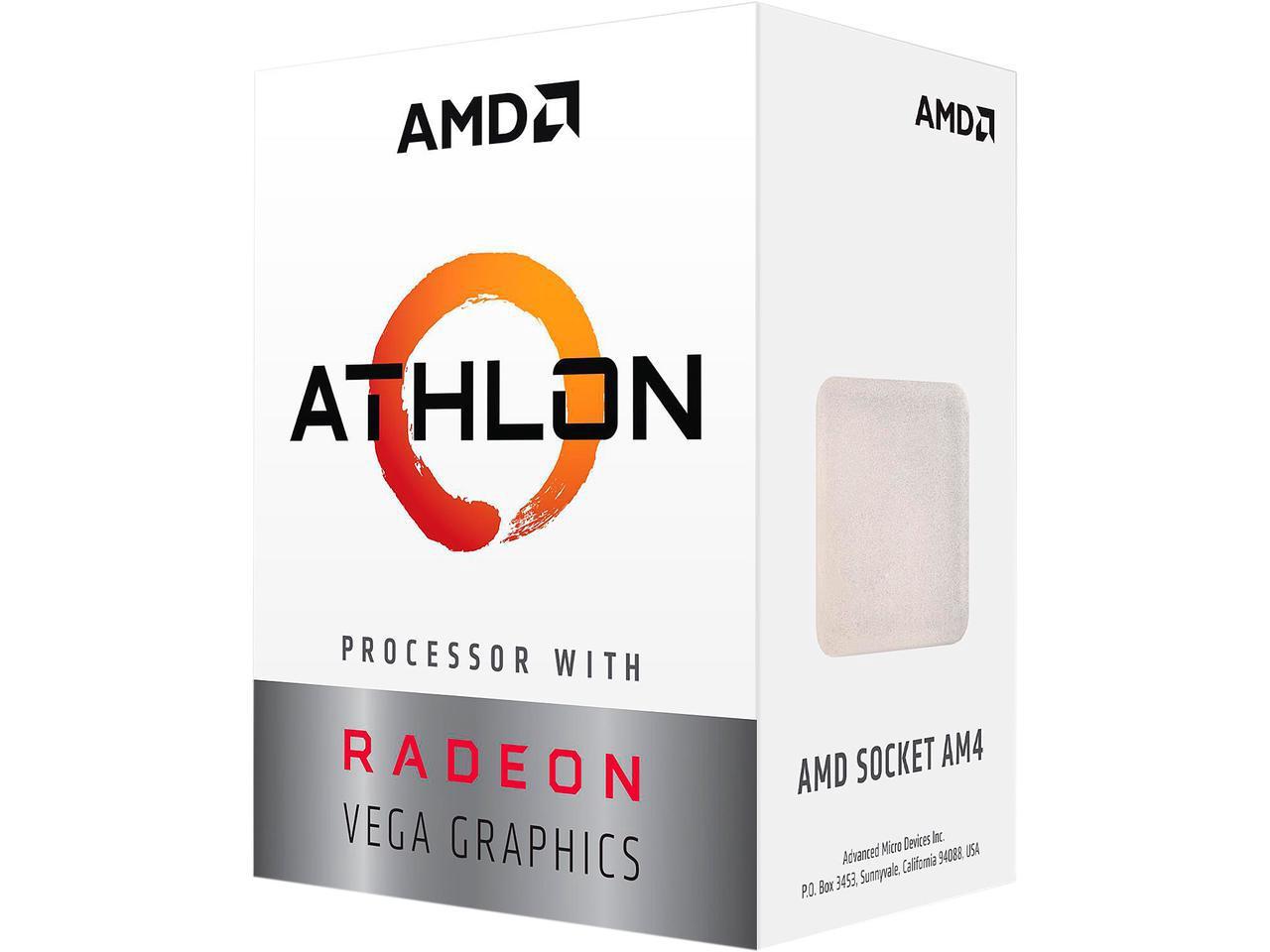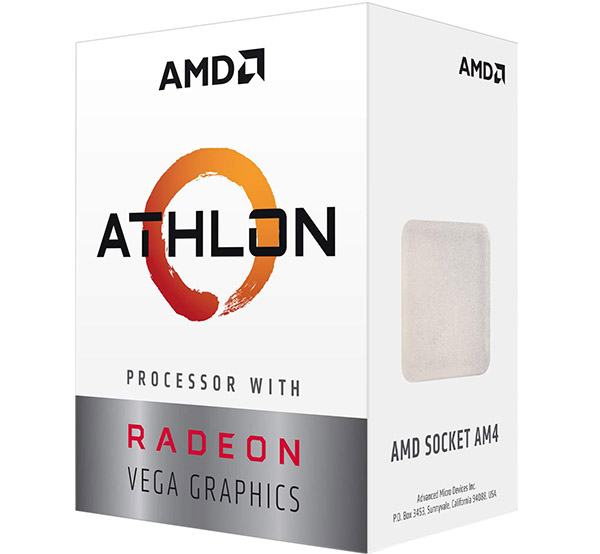AMD Athlon 240GE and 220GE Review: Retaking the Low Ground
Why you can trust Tom's Hardware
Rendering, Encoding and Compression
Rendering
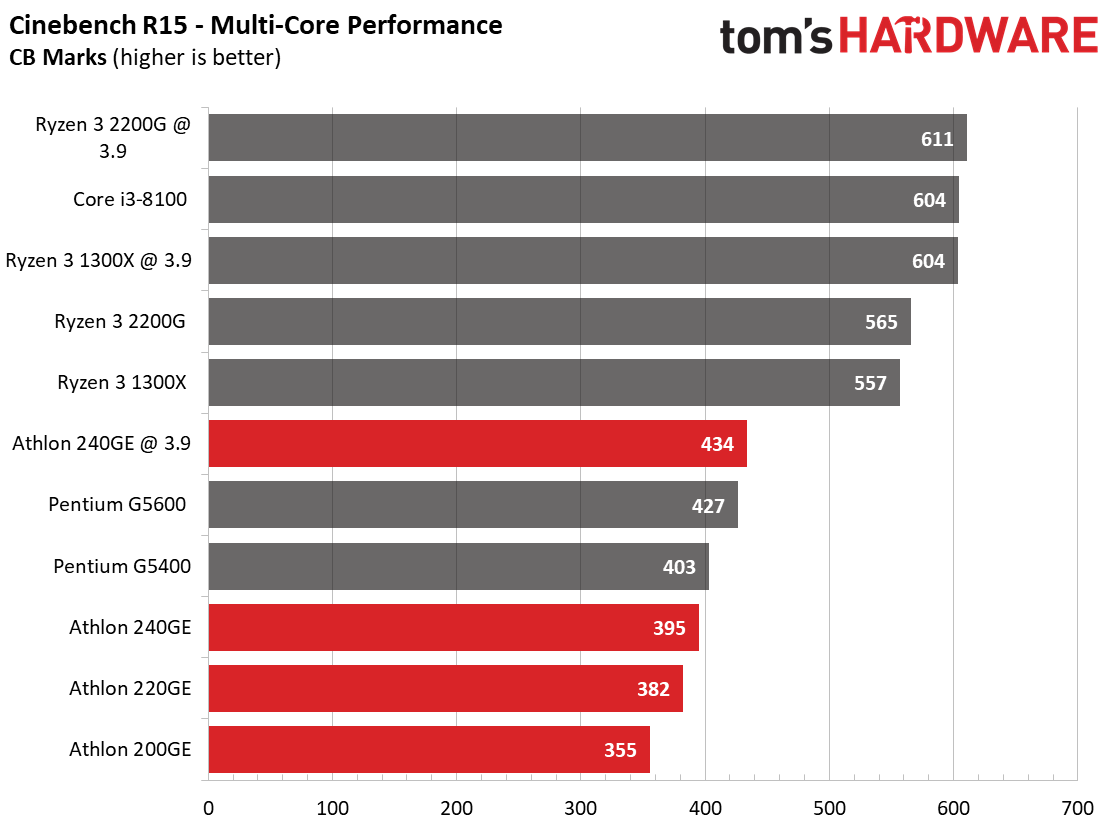
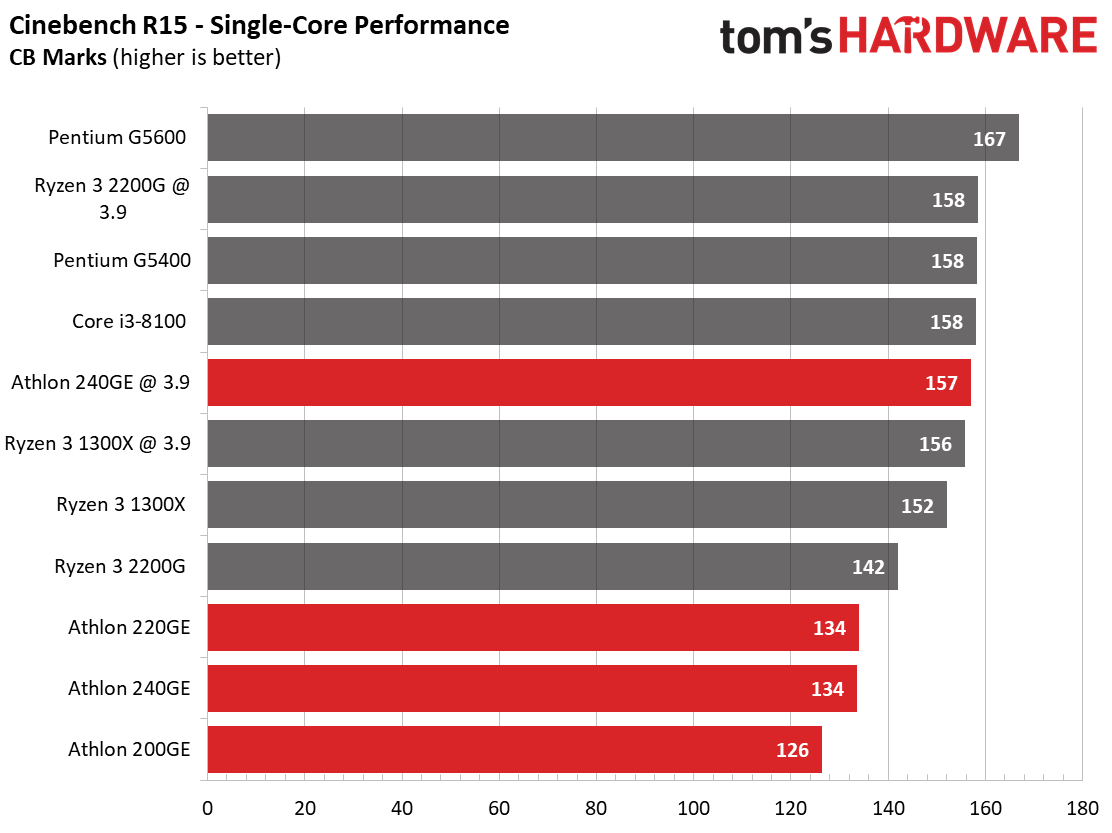
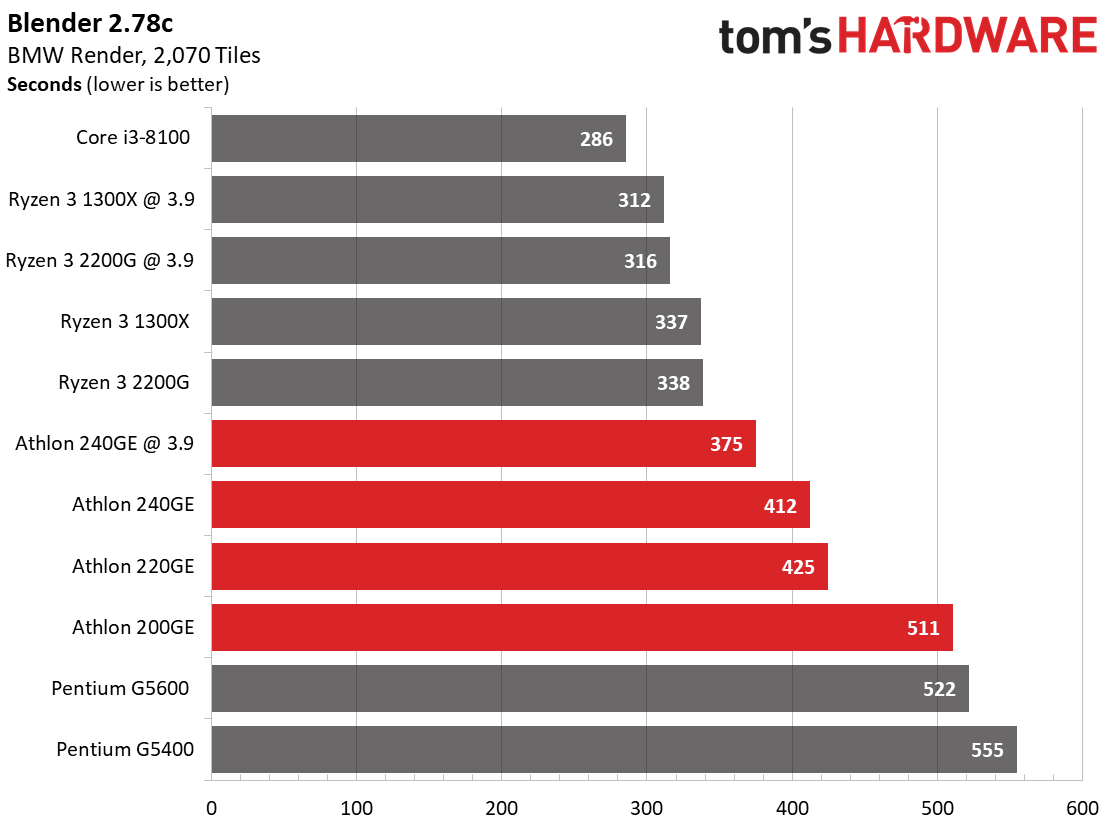
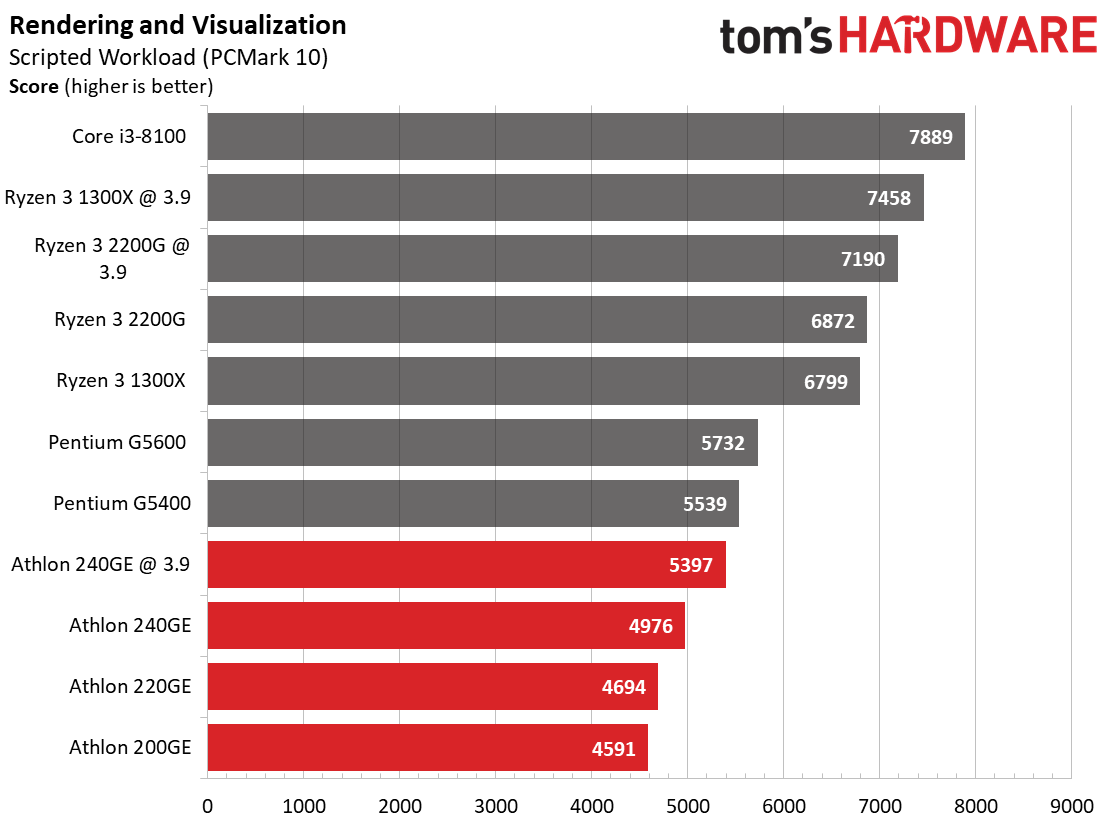
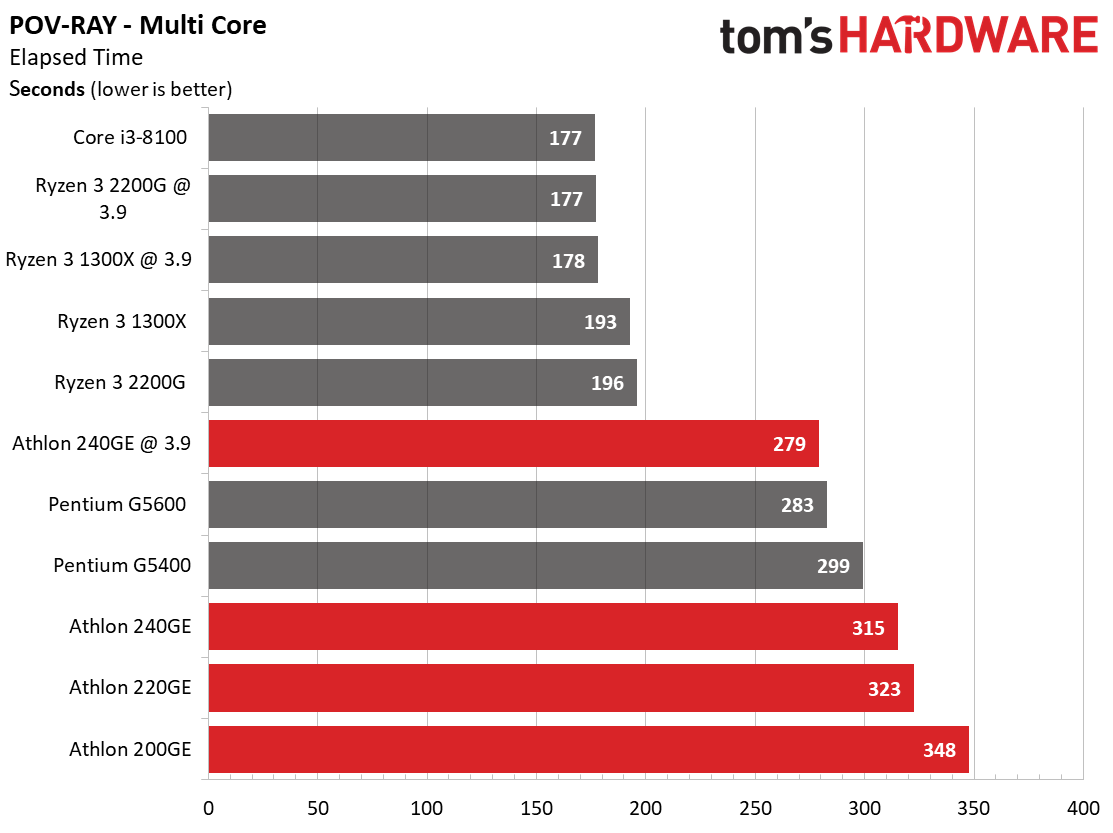
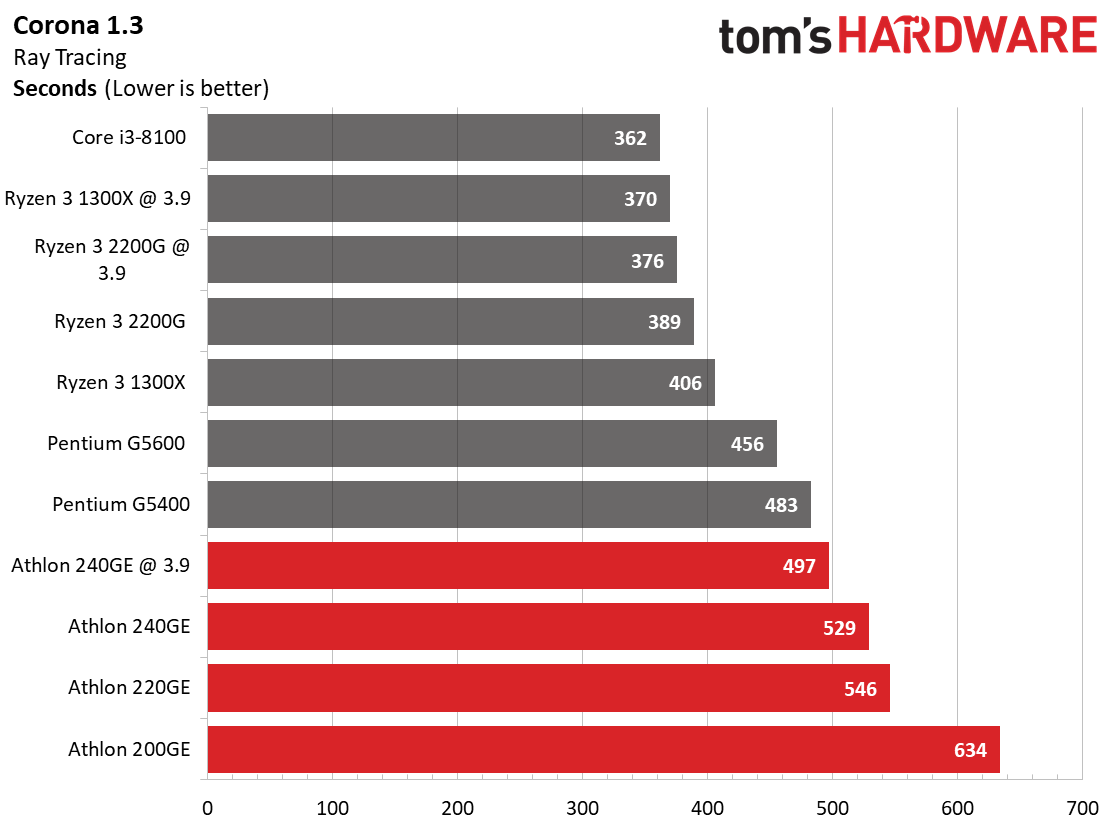
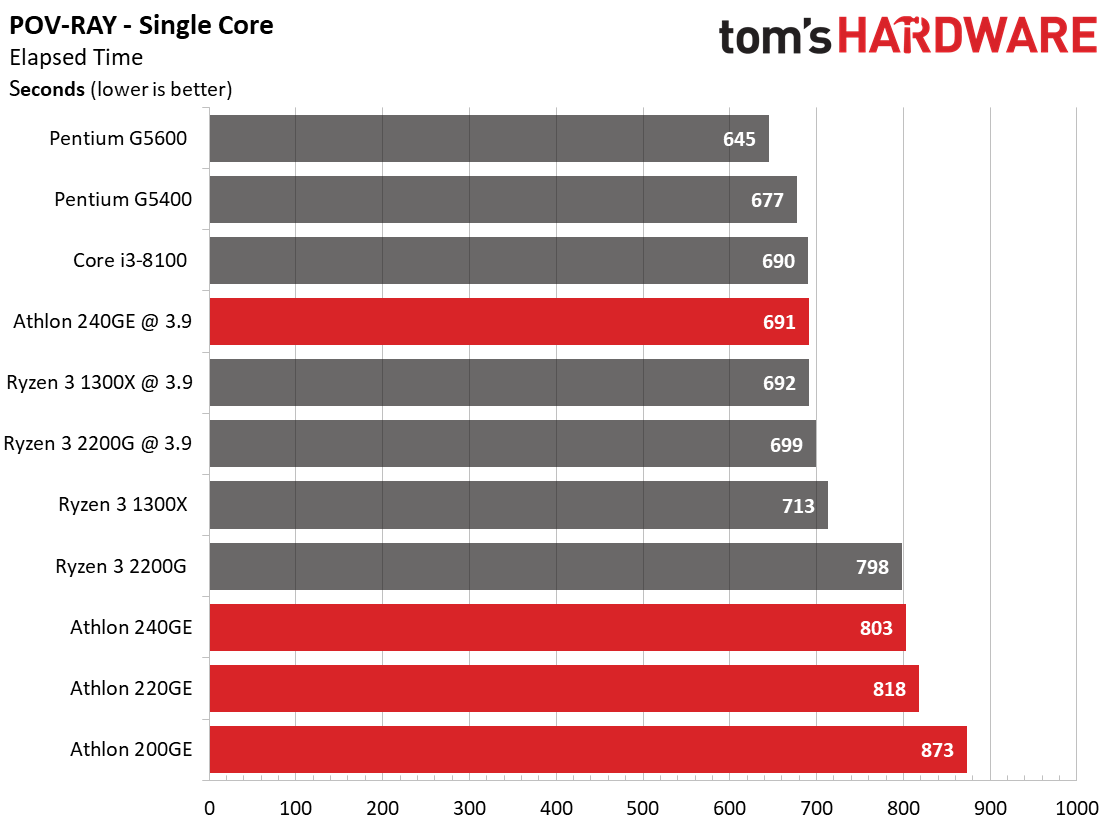
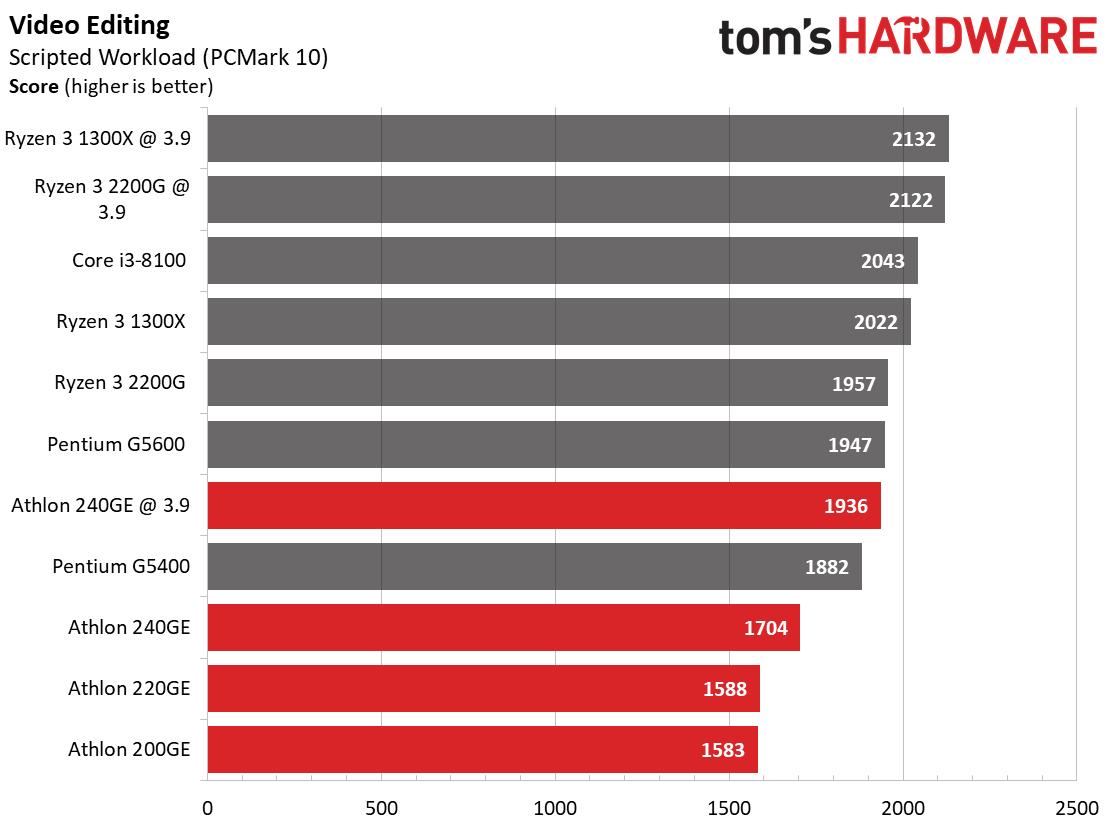
Low-end chips obviously aren't ideal for rendering workloads. But aside from a notably poor showing in the Corona test, AMD's Athlons are competitive with Intel's Pentium processors in multi-threaded benchmarks, especially after overclocking.
It takes overclocking to make the Athlon do battle with those same Pentiums during the single-threaded Cinebench and POV-Ray test. However, it's clear that Intel retains its lead in single-threaded benchmarks.
Encoding & Compression
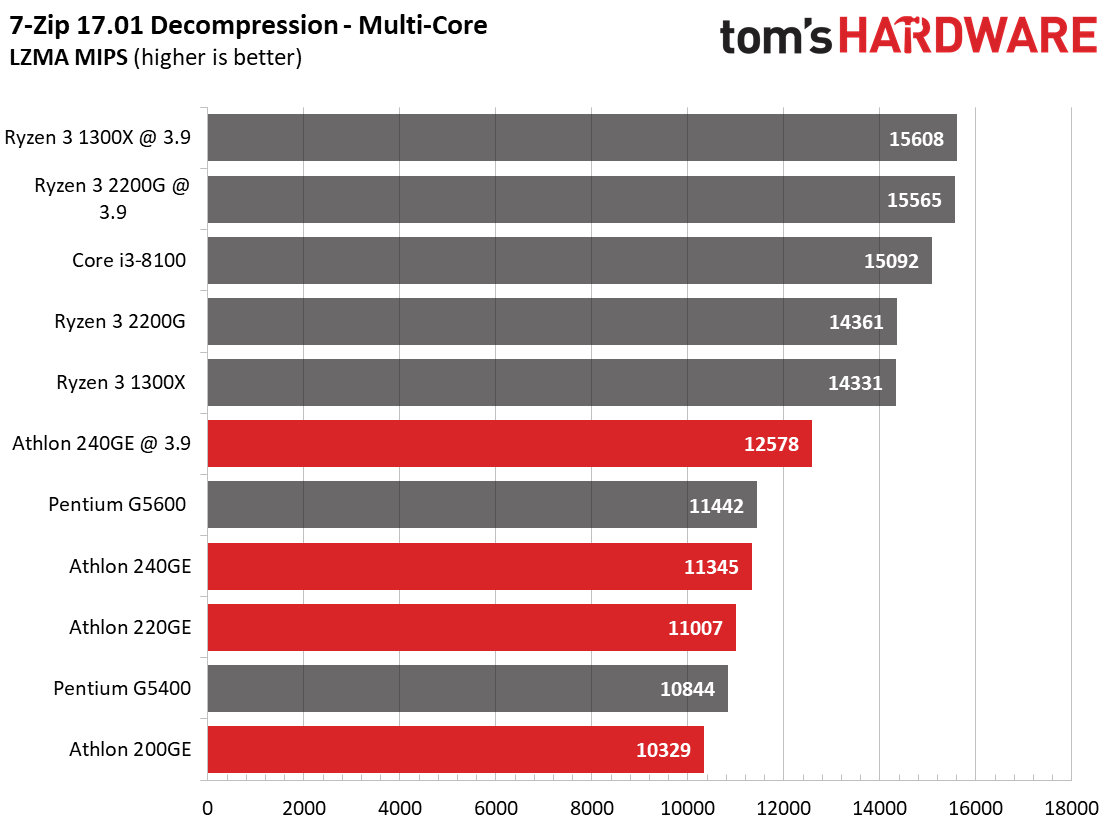
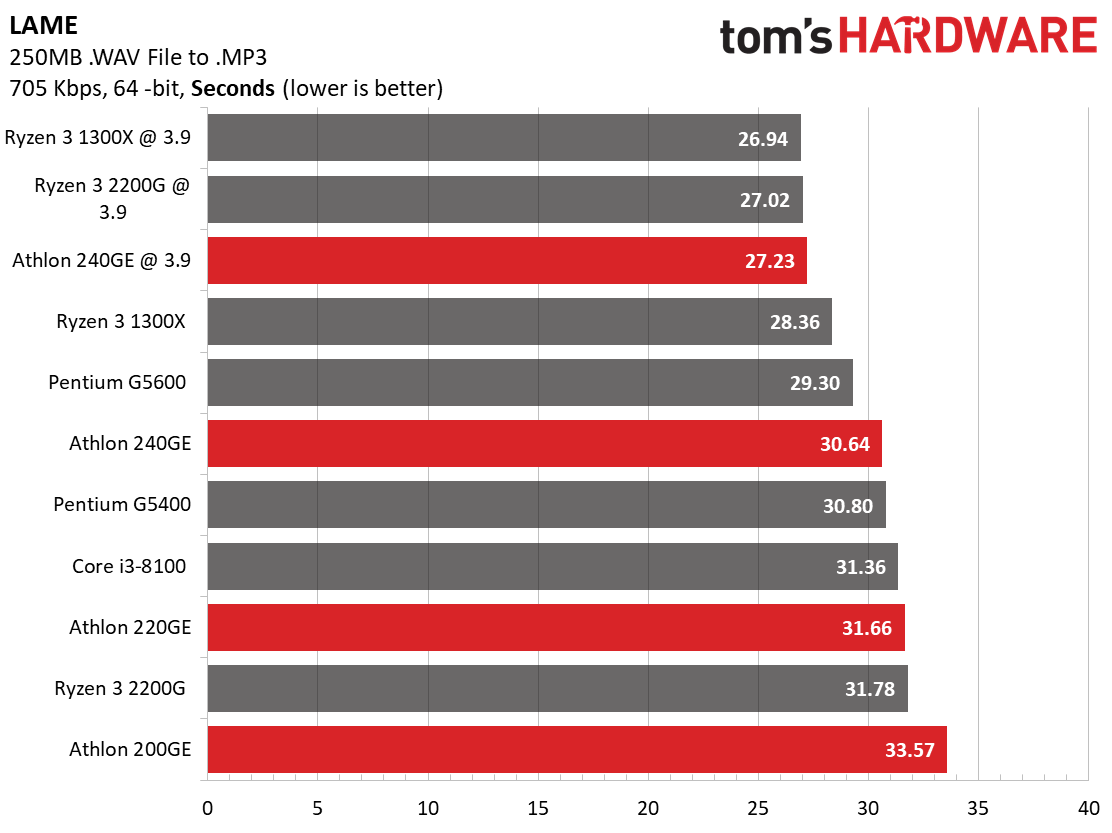
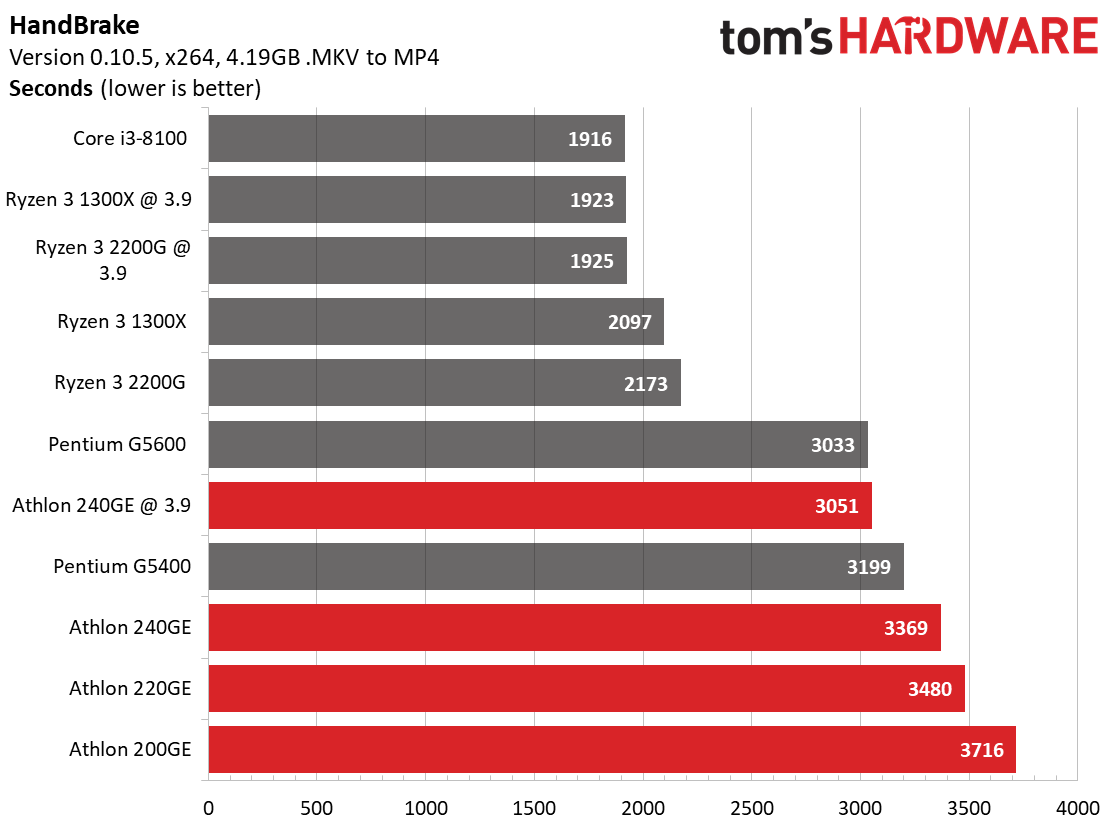
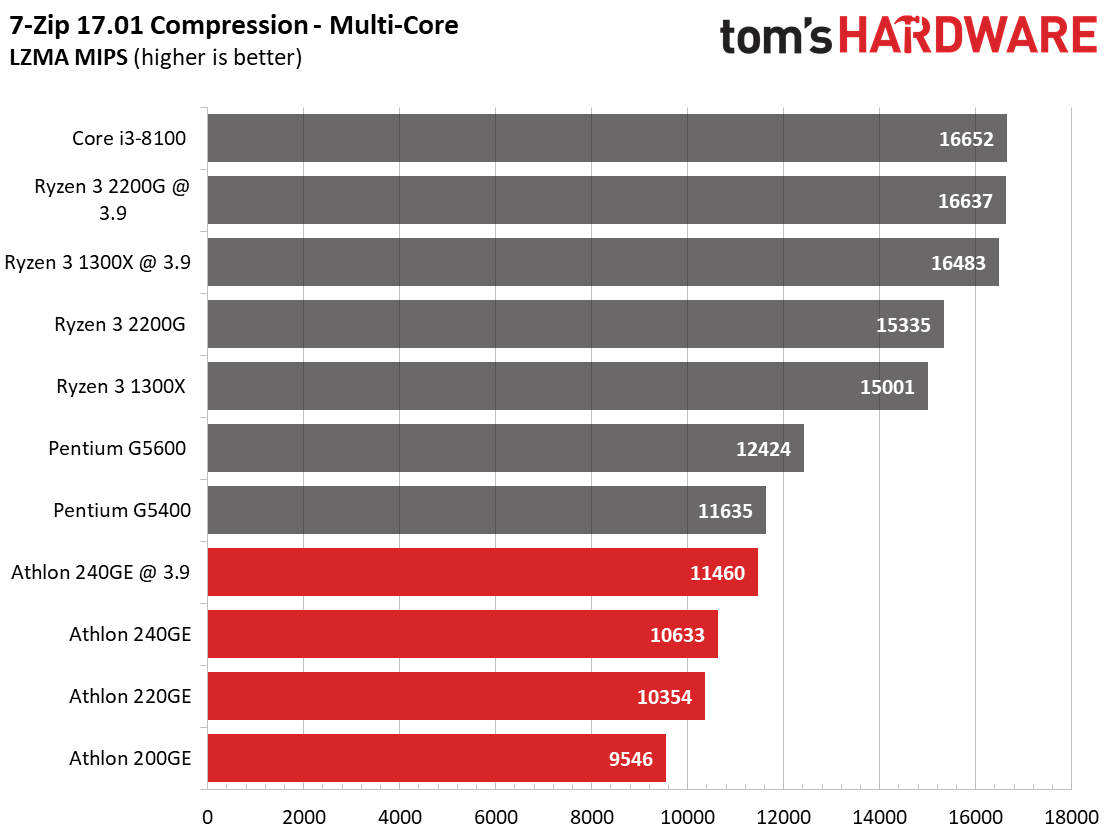
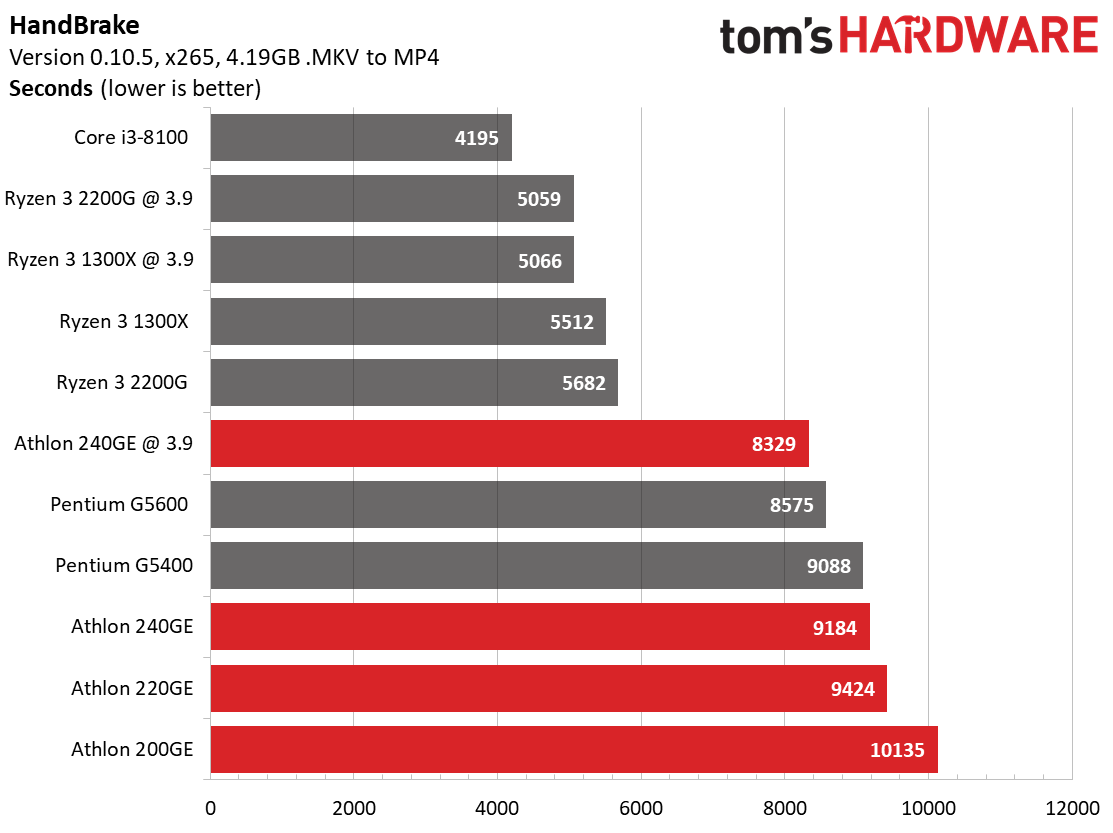
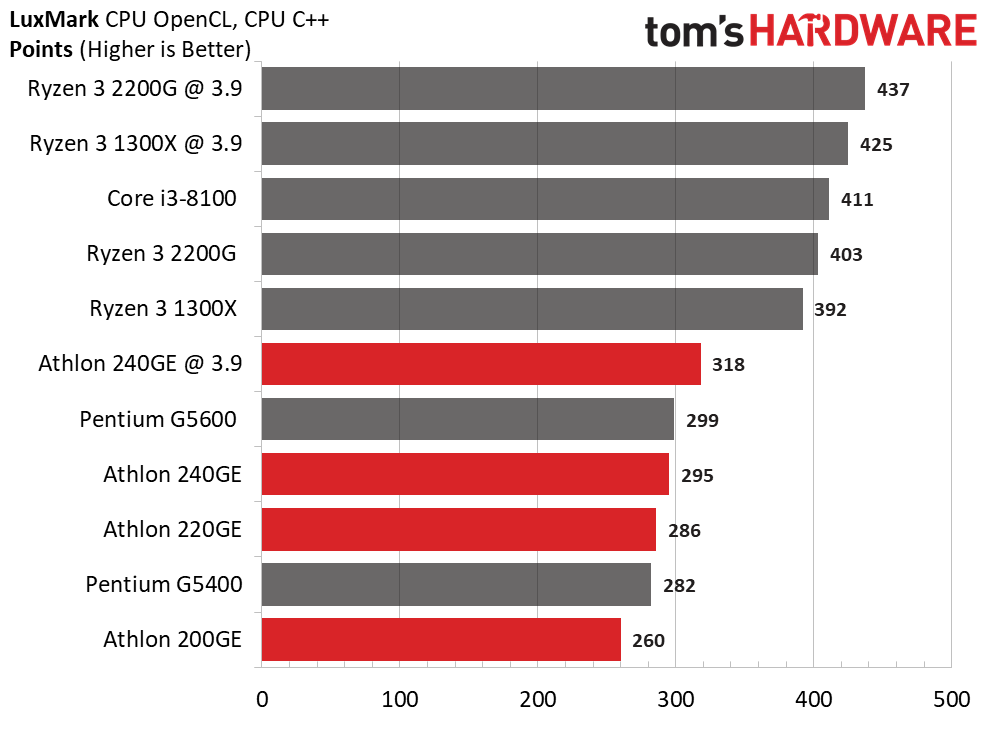
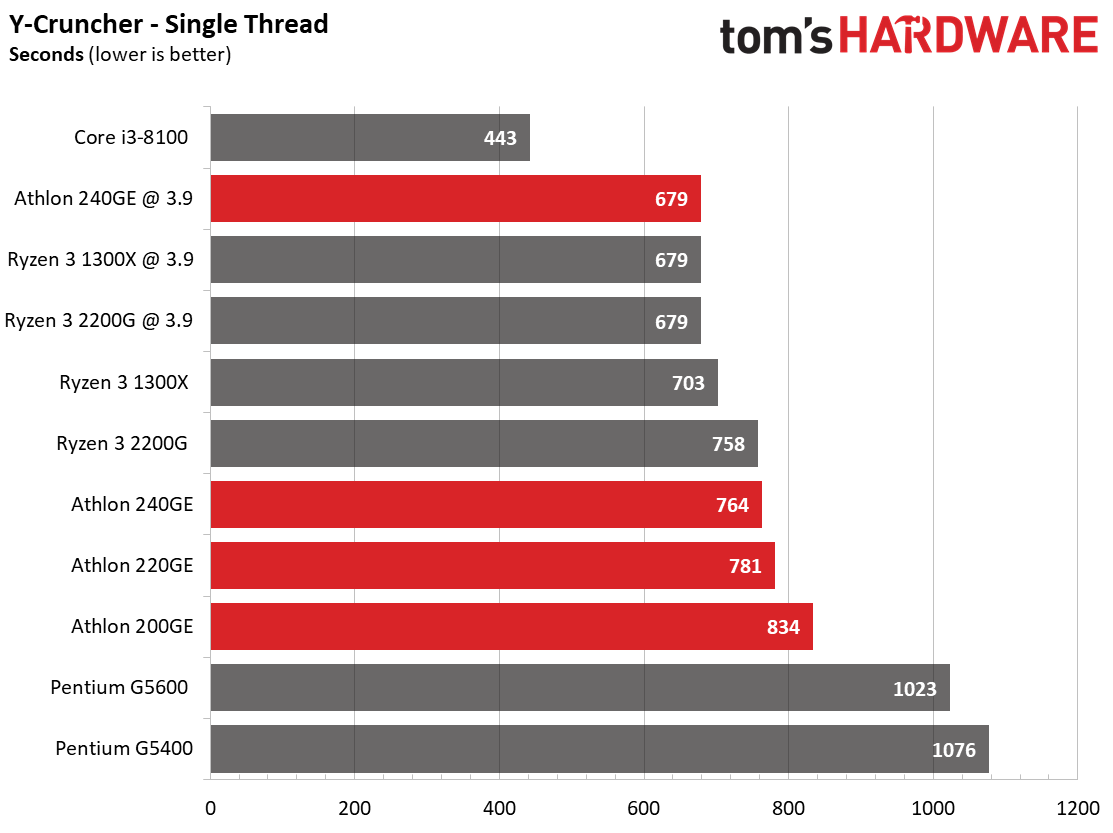
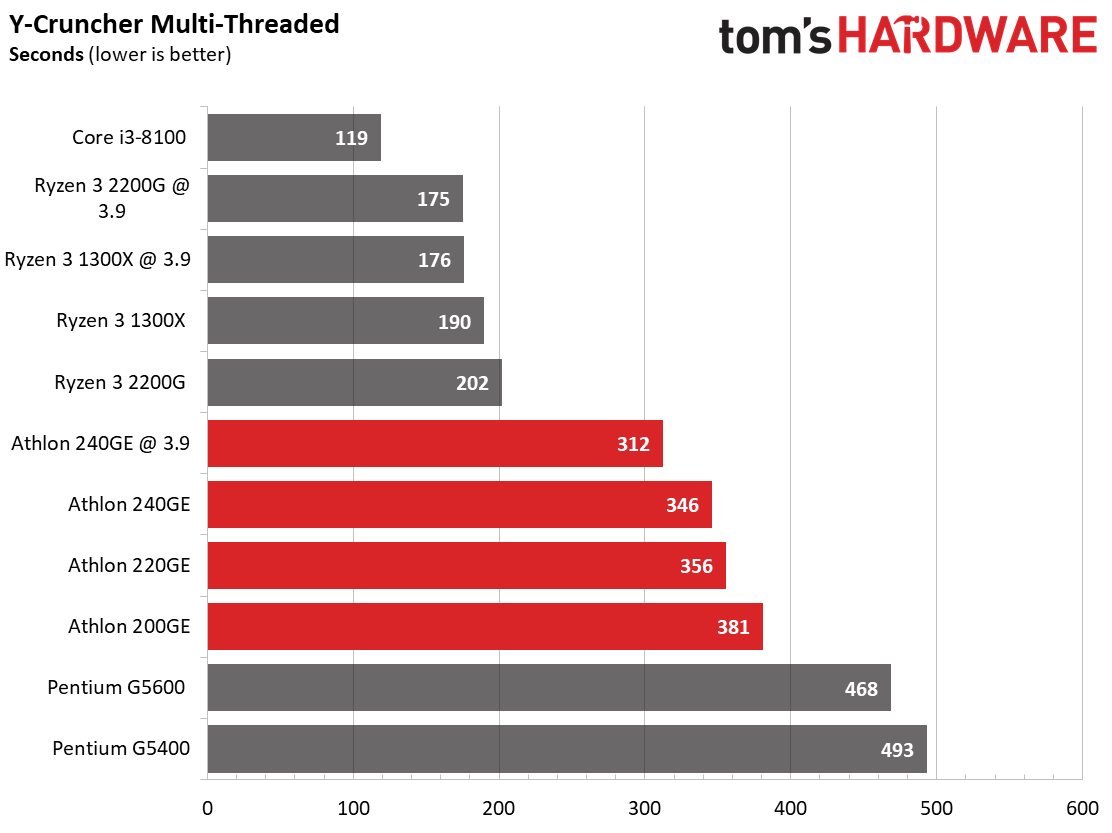
True to what we've seen from other Zen-based processors, the Athlons are more competitive in decompression workloads, mixing it up with the Pentium models, than the compression test.
y-cruncher, a single- and multi-threaded program that computes pi, is a great tool for measuring the effect of AVX instructions. Pentium processors are deliberately handicapped by Intel, rendering them unable to accelerate AVX instruction processing. As a result, the Athlon processors handily outperform the Pentium models in both threaded and single-core tests.
The HandBrake x265 test is heavily optimized for AVX instructions, while the H.264 benchmark uses a lighter distribution. The Athlon processors aren't as competitive in the real-world AVX-heavy tests as they are in the synthetic y-cruncher tests, highlighting that other factors, such as memory and cache latency, can play a bigger role in real-world applications.
MORE: Best Cheap CPUs
MORE: Intel & AMD Processor Hierarchy
Get Tom's Hardware's best news and in-depth reviews, straight to your inbox.
MORE: All CPUs Content
Current page: Rendering, Encoding and Compression
Prev Page Office and Productivity Next Page Conclusion
Paul Alcorn is the Editor-in-Chief for Tom's Hardware US. He also writes news and reviews on CPUs, storage, and enterprise hardware.
